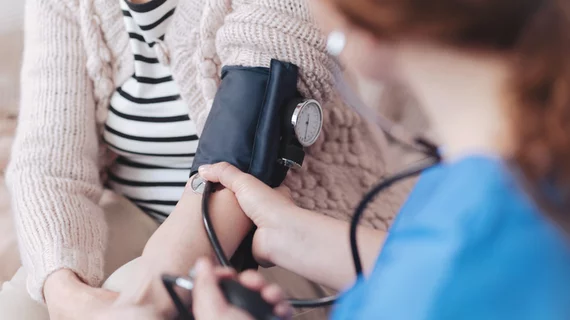How health systems could do more to help hypertension patients
Patients with hypertension may benefit from more support and attention from their health system, according to a new scientific statement from the American Heart Association (AHA).
The statement, published in Hypertension, encouraged healthcare professionals—including pharmacy employees and insurance providers—to work on developing evidence-based strategies that address medication adherence and create more personal solutions for blood pressure (BP) control.
“To reduce the massive risk for hospitalizations and deaths due to uncontrolled high blood pressure, specific attention is needed to understand why people don’t take their medicine as prescribed," statement writing group chair Niteesh K. Choudhry, MD, PhD, professor of medicine at Harvard Medical School, said in a press release. “It’s a factor that is highly modifiable. There are many reasons a person doesn’t use or take medications properly, and a number of those reasons aren’t in their control. As we look for strategies to support people with high blood pressure, we need to consider solutions that address other contributors, including the role of health care professionals and the healthcare system.”
The statement explores some of the most effective ways to measure medication adherence.
For example, self-reported data and patient questionnaires aren’t always accurate, because patients often overestimate how well they follow their prescribed medication regimen. Also, while direct observation is accurate, it is not always practical.
While new technologies, including digital sensors and electronic medication dispensers, have been made available, the statement's authors found that they are not always viable in a clinical practice setting.
Pharmacy refill databases are viewed as the most accurate and efficient way to track adherence for a large group of patients over time. However, not all health systems have access to such a resource.
Reviewing data from 2000 to the present day, the statement's authors provided recommendations that fell into one of four categories:
- Patient education and counseling
- Medication regime management
- Reminders, monitoring and feedback
- Incentives
Interventions mentioned by the group included real-time counseling, text-based reminder notices, open-ended discussions, visual aids, advanced technologies and more. Simplifying "the medication regime" is another key way to improve adherence, as is monitoring BP levels from the comfort of home.
Read the full AHA scientific statement here.
